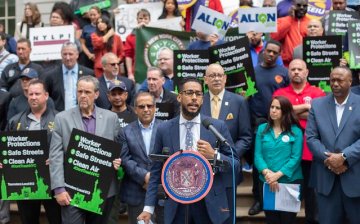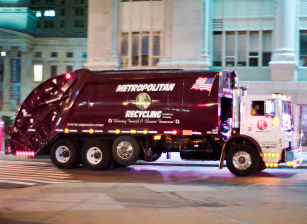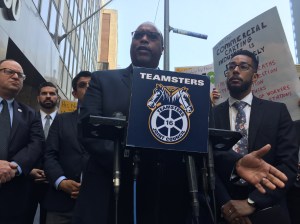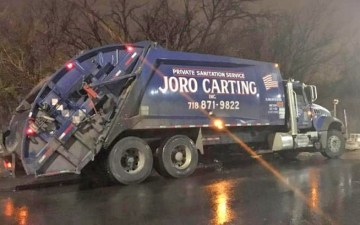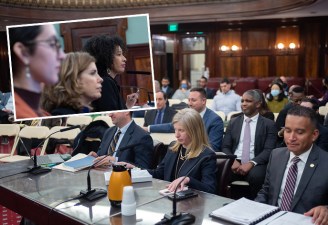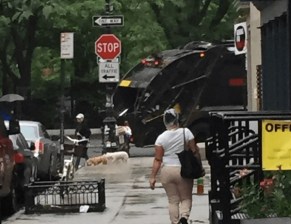Reform of Rogue Sanitation Companies Will Save Lives — And the Planet
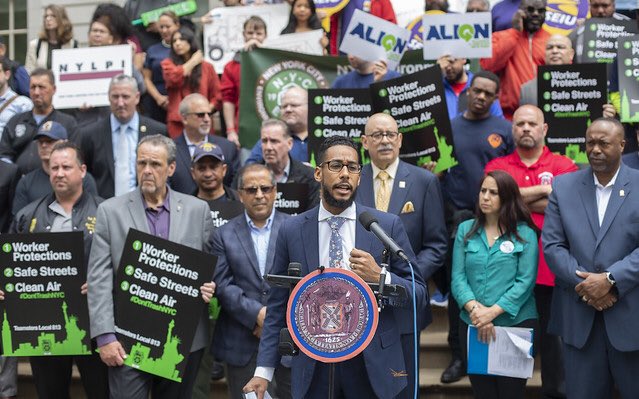
Can the garbage industry get clean?
A City Council proposal to reform the notorious private carting industry will not only make the roads safer, but will be the ecological equivalent of removing one-fifth of the city’s greenhouse-gas-spewing cars — but the de Blasio administration doesn’t support the measure.
A new report to be issued today by the Transform Don’t Trash NYC coalition bolsters Brooklyn Council Member Antonio Reynoso’s call to create exclusive zones where only a single trash company could operate and put an end to the current free-for-all of up to 50 private carters picking up trash in each neighborhood. Exclusive zones, Reynoso says, would eliminate the incentive for the rogue companies to race through the streets from dusk to dawn, but also cut the number of trucks on the streets — reducing 18 million diesel truck miles a year, which is the equivalent of 37 trips to the moon and back.
“There can be no more debate and half-measures on climate change. The time to transform New York’s commercial waste system to sharply reduce both greenhouse gas emissions and local air pollution is now,” said Justin Wood from New York Lawyers for the Public Interest, who co-authored the report, Fighting New York’s Climate Emergency with Waste Zones. “We’re far behind other cities, where we should be leading.”

Reynoso unveiled legislation last month in hopes of reforming an industry that has killed at least 21 people since 2016, with the latest fatality coming last month when a Boro Wide Recycling truck driver backed up a one-way street in Jamaica, striking and killing a motorcycle rider.
Today I intro’d a bill to enact a commercial waste zone system in NYC. It is finally time to transform this industry for the sake of workers, communities, and the environment.
TY to my Council colleagues & the @donttrashnyc coalition for their support. pic.twitter.com/rWjuD41xF4
— Antonio Reynoso (@ReynosoBrooklyn) May 29, 2019
The de Blasio administration balks at Reynoso’s call for “no less 20 zones” exclusive zones, preferring permitting three to five haulers to 20 zones across the city. Transitioning to exclusive waste zones holds the promise of reducing crashes, but it would also drastically cut back on the amount of greenhouse gasses the thousands of big rigs emit into the air by creating recycling and composting requirements through financial incentives as part of the legislation.
Commercial waste hauling is not often thought about when officials tackle global warming — but there are roughly 1,100 diesel-powered garbage trucks on the city’s streets every night. Worse, says Eric Goldstein of the Natural Resources Defense Council, the industry isn’t doing enough about all the food waste that gets mixed in with the garbage, releasing “planet-cooking methane” as it decays.
“An exclusive zone system, as this report shows, can slash these airborne emissions and transform the city’s commercial waste collection system from a renegade source of global warming pollution to a national model of sustainability and equity,” he said.
The Council will take up the legislation on June 27.
